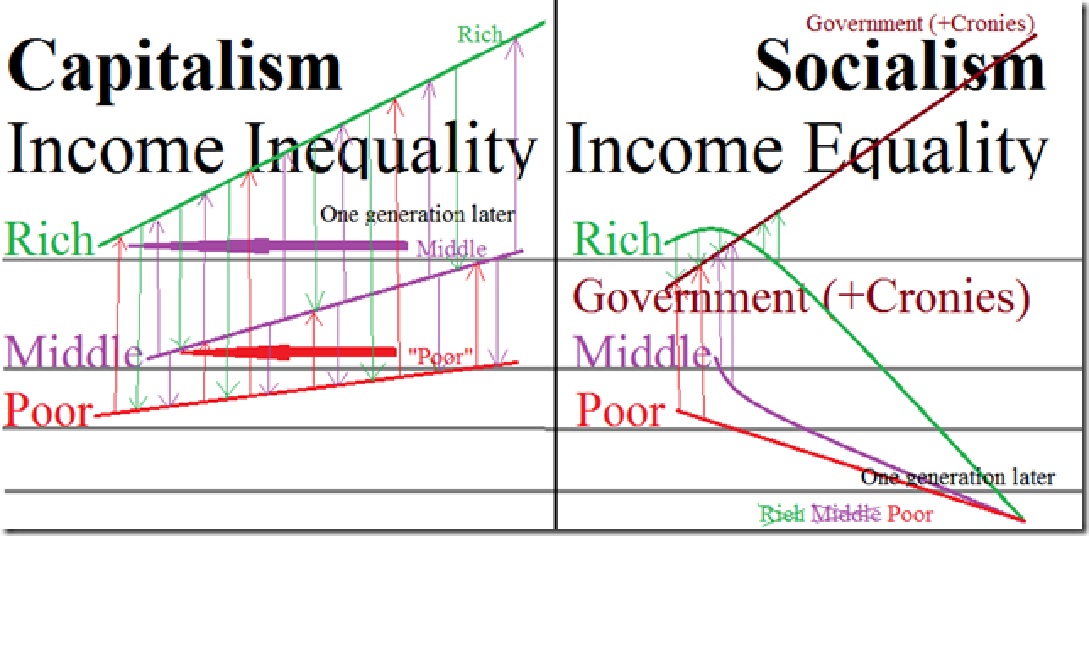Previously mentioned a graph that illustrates the idea that socialists
would rather the poor were poorer provided the rich were less rich.
Here is a revised graph:

This is a much busier graph. Like the earlier graph, it is from Dave Poling and is used with his permission. Here are a thousand words to describe his graph.
It shows the same relationships –
In a generation, the poor become as well off as the middle were a generation earlier. The middle gains a lot and is as well off as the rich a generation earlier. And yes, the rich become really rich.
Under socialism, the rich, middle, and poor all get worse off.
An addition to this graph is the government and cronies. I call the latter group the crony capitalists, those companies and individuals who make their business thrive by lobbying the government and getting special treatment. They do quite nicely under socialism, thank you very much.
Since there is so much going on here, let’s look at the graphs in more detail.
(more…)

